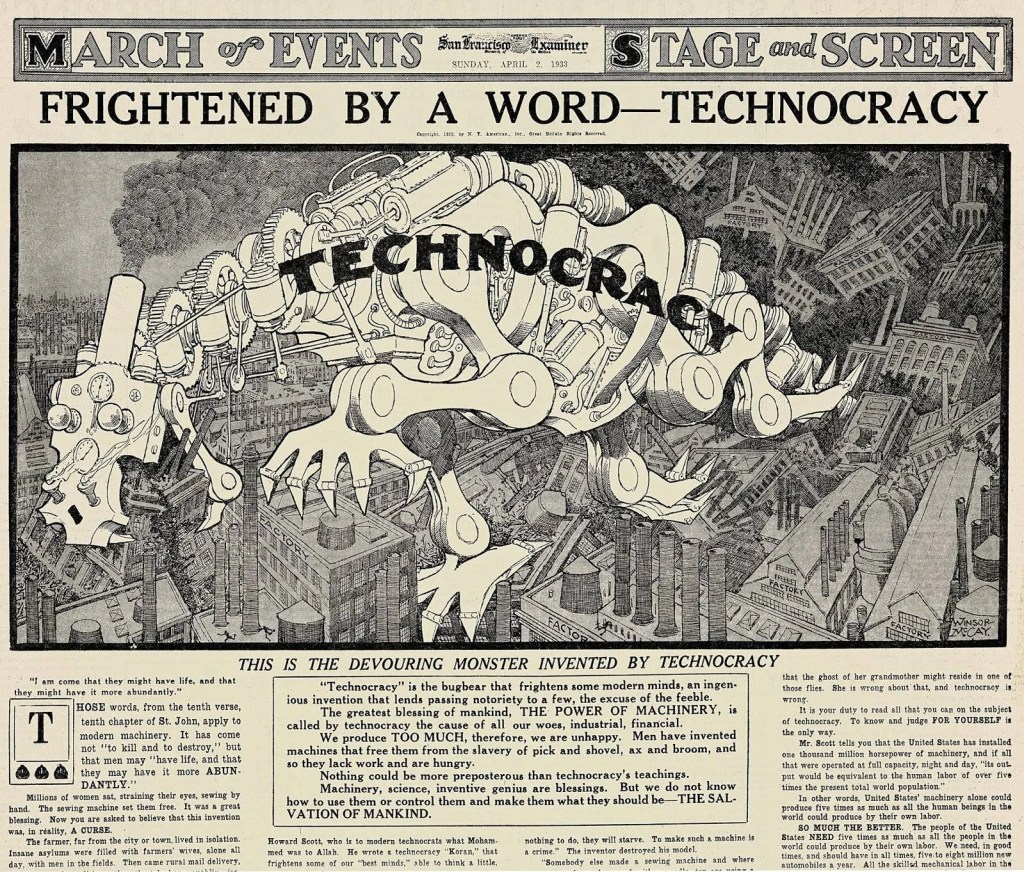In the first part of Jesse Smith’s exploration of the technocratic movement, a historical overview highlighted the aspirations of Technocracy Inc. from the 1930s, which sought to reshape North America into a scientifically governed regime managed by experts in technology and science. The aim was to have a societal structure run by scientists, engineers, and technicians who would regulate all industry, resources, and governance. The current global landscape demonstrates that these technocratic ideals are gradually being woven into modern governance through collaborative efforts of major technology firms, governmental bodies, and non-governmental organizations (NGOs). This raises critical inquiries regarding the legitimacy of today’s technocrats, their worldview, and the objectives driving their actions.
Technocratic governance often trends toward elitism, as it is inherently based on the belief that only a select few from technical and scientific disciplines are qualified to guide societal development. This perception results in a paradox wherein, while promisor of equality, technocracy may yield an oligarchic structure dominated by elites. The technocrats’ disdain for traditional political systems stems from the belief that all existing forms lack the requisite capability to navigate contemporary challenges. Their solution lies within an intricate structure grounded in technological proficiency, distinct from any known political system such as democracy or dictatorship, which has proven inadequate to manage societal needs. This distinct paradigm envisions a system of governance that relies purely on technical expertise.
The early technocrats predicted a world more reliant on technological advancements, with societies becoming increasingly dependent on innovations for basic necessities. They proposed a radical transformation in how goods and services are distributed, advocating for replacing monetary systems with models driven by energy costs. This strategy was intended to facilitate equitable distribution through direct control of essential production resources like railroads, power plants, and agriculture, enabling a high standard of living and public health, while minimizing waste. Their pivotal document, The Technocracy Study Course, articulated these aspirations, setting in motion a vision for a society where technological management supersedes traditional economic mechanisms.
From the technocrats’ perspective, the collapse of the capitalist system was seen as inevitable, with historical events like the Great Depression cited as evidence of this decline. They postulated that, post-collapse, their system of technocratic governance would provide the necessary answers and ensure social stability. Such foresight has resonated in contemporary society as various technocratic principles have found their way into global governance models. The original beliefs upheld by Technocracy Inc. have evolved and been adopted across different countries, indicating a significant ideological shift toward technocratic handling of modern societal issues.
As we navigate a world increasingly dissatisfied with democratic governance and its perceived ineffectiveness, there has been a noticeable shift in trust towards technocratic solutions. An ideology emerges where technocracy is viewed as a viable alternative to faltering democratic structures, attracting leaders across the globe who are now engaging technocrats to resolve economic and governance crises. Countries from the U.K. to China have explored technocratic governance as a solution to societal woes. Recent agreements in the Gaza Strip to establish a technocratic government, and collaborations in places like Saint Lucia for climate-related challenges, exemplify this growing trend.
In summation, Jesse Smith’s examination of the technocratic movement reveals a compelling narrative about the interplay between technology, governance, and societal structure. The ideas originating from the 1930s have transformed and proliferated worldwide, establishing a foothold in various nations as disenchantment with traditional political frameworks grows. The increasing reliance on technocrats in decision-making processes poses significant questions about authority, representation, and the role of expertise in shaping society’s future. As we move ahead, the implications of technocratic governance will undoubtedly continue to shape the global landscape and human relationships with power and technology.

